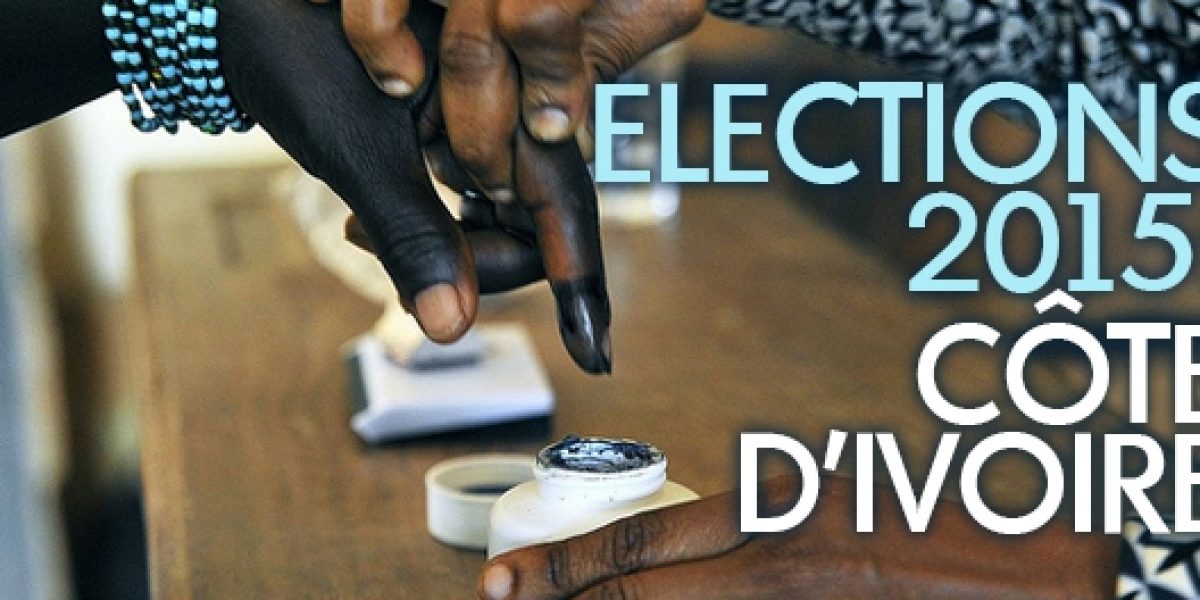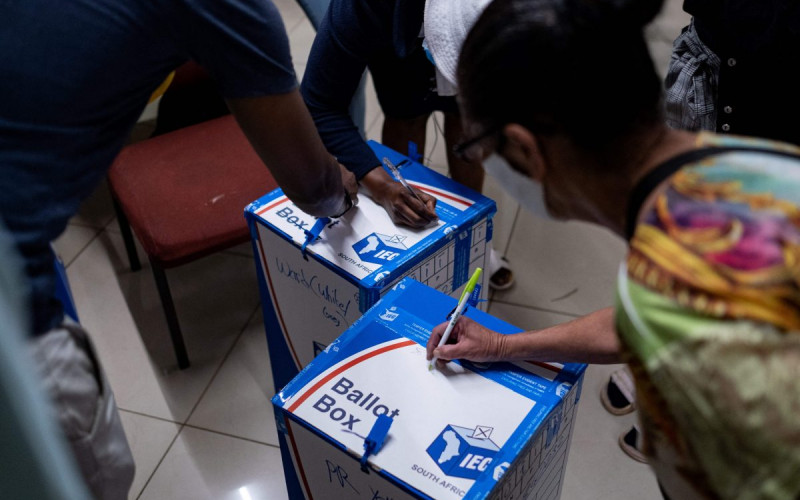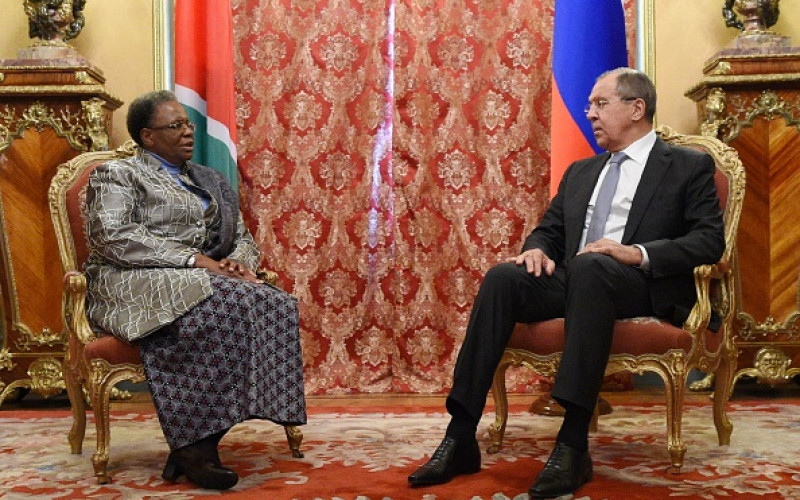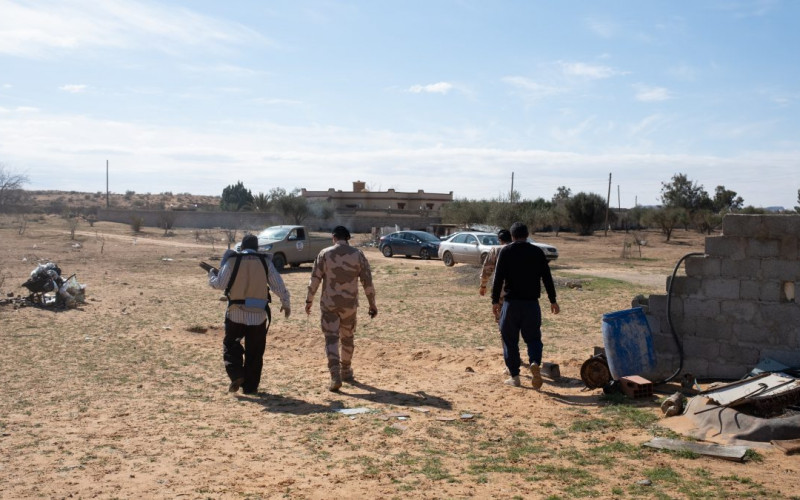With the campaign formally ending on 23 October, seven candidates will be in the running against incumbent President Alassane Dramane Ouattara, whose entry into office was marred by post-electoral tensions and violence in December 2010.
While Ouattara and his administration managed to turn the fortunes of Côte d’Ivoire in his first term, he is not assured of victory in the first round. With former prime minister and political heavyweight, Charles Konan Banny running under the broad Coalition for National Change, a duel between Ouattara and his former ally in the Parti Democratique de Côte d’Ivoire (PDCI) is most likely. Beyond these two prominent personalities of Ivorian politics, the presidential elections, and the context in which they take place will determine whether the transition to democracy under Ouattara has been successful. More important, their shade and shape (free and fair) will be crucial in the consolidation of the post-conflict reconstruction phase in Côte d’Ivoire.
Read a recent briefing paper, ‘Consolidating the Regional Diplomacy of Côte d’Ivoire.’
Notwithstanding criticism from the opposition about equality of access to state-media and other teething organisational problems, including the national voters roll, and the inadequate number of voting stations, the campaigns have been fairly peaceful. It is less likely that the elections could lead to the violence of the scale witnessed between November 2010 and April 2011.
There are three possible explanations as to why Côte d’Ivoire will not return to the violence of the past. First, after more than a decade of war and conflict since the coup d’état by the late general Robert Guei in 1999, conflict fatigue has been palpable in a country that was for decades an example of successful French decolonisation. Unlike other countries in the sub-region, decolonisation in Côte d’Ivoire was accompanied by robust economic growth, including consequent investments in infrastructure and human development. With a high regional economic profile and a charismatic leader in the founding president, Felix Houphouet-Boigny the country was able to play a pivotal role in the political economy of West Africa. In light of this glorious past, the country’s political and economic decline has been viewed as inconsistent with the identity of development and progress that Ivorians had forged for themselves.
The second reason explaining why violence is unlikely resides in the nature of the political transition and economic transformation under Ouattara since 2011. Since he assumed office, Côte d’Ivoire has made remarkable progress and witnessed rapid transformation in a number of areas. Apart from creating conditions for the rule of law, fighting corruption and an ambitious reform agenda, Côte d’Ivoire with current Gross Domestic Product annual growth at 9% is one of the fastest growing economies in the world. Inflation has also remained subdued at well below 3%. This macro-economic climate is favourable when viewed against a steep decline of -4% growth in 2011. In its recently released Africa Competitiveness Report 2015, the World Economic Forum lists Côte d’Ivoire among the top 15 most competitive economies in Africa. Moreover, the World Bank Doing Business Report ranked Côte d’Ivoire among the top ten reformers for two consecutive years (2014 and 2015). Economic transformation under the 2012-2015 National Development Plan and the 2012 Investment Code aiming to transform Côte d’Ivoire into an emerging economy by 2020 have translated into modest improvements in the lives of ordinary citizens.
Big infrastructure projects such as the Henri Konan Bedie bridge constructed at a cost of US$300 million, a public-private partnership between French construction Bouygues and the government, have created job opportunities and eased traffic congestion. Other infrastructure projects such as the highway connecting the economic and the political capital Abidjan and Yamoussoukro respectively have uplifted the national mood. Moreover, the return of the African Development Bank to Abidjan in 2014 signalled the return of Côte d’Ivoire to the continental scene as a potential financial hub. To a certain degree, progress on the economic front has been possible as a result of a difficult inclusive political dialogue between government and the opposition since 2013. Without doubt, various challenges remain in the processes of national reconciliation, human rights and the reintegration of former combatants.
The third explanation has to do with the successful reintegration of Côte d’Ivoire in regional and international diplomacies. The election of Ouattara as chairman of the Economic Community of West African States (ECOWAS) in 2012 at the height of the conflict in Mali recalibrated the diplomacy of Côte d’Ivoire toward regional problem solving. It was also under Ouattara that the regional body agreed to the introduction of a Common External Tariff by January 2015, which has now come into effect. The visible role played by Côte d’Ivoire during its chairmanship of ECOWAS did not only legitimise Ouattara to his domestic constituency, but also enhanced the prestige of the country. To a certain degree, it normalised Côte d’Ivoire in regional and international politics.
The three explanations offered provide the back-drop against which the current elections will be played out. While Côte d’Ivoire is yet to be a normal country, there are sound bases that have been consolidated during the political transition of the past five years. Alassane Ouattara is contesting the presidency under the slogan of ‘definitive peace’ with the intention to transform the country into an oasis of peace and economic growth. His main rival, Charles Konan Banny is contesting the presidency under the banner ‘Côte d’Ivoire, our passion’. Both slogans speak about an aspirational country, which Côte d’Ivoire used to be in the region.
For the next phase to succeed and for credible presidential elections to take place, regional and international actors, including ECOWAS, the African Union, the United Nations and leading African countries such as South Africa should assist in the political and economic development of Côte d’Ivoire. Doing so will be in the interest of regional peace and development, and the definite return of a pivotal state to the front row of continental politics.






